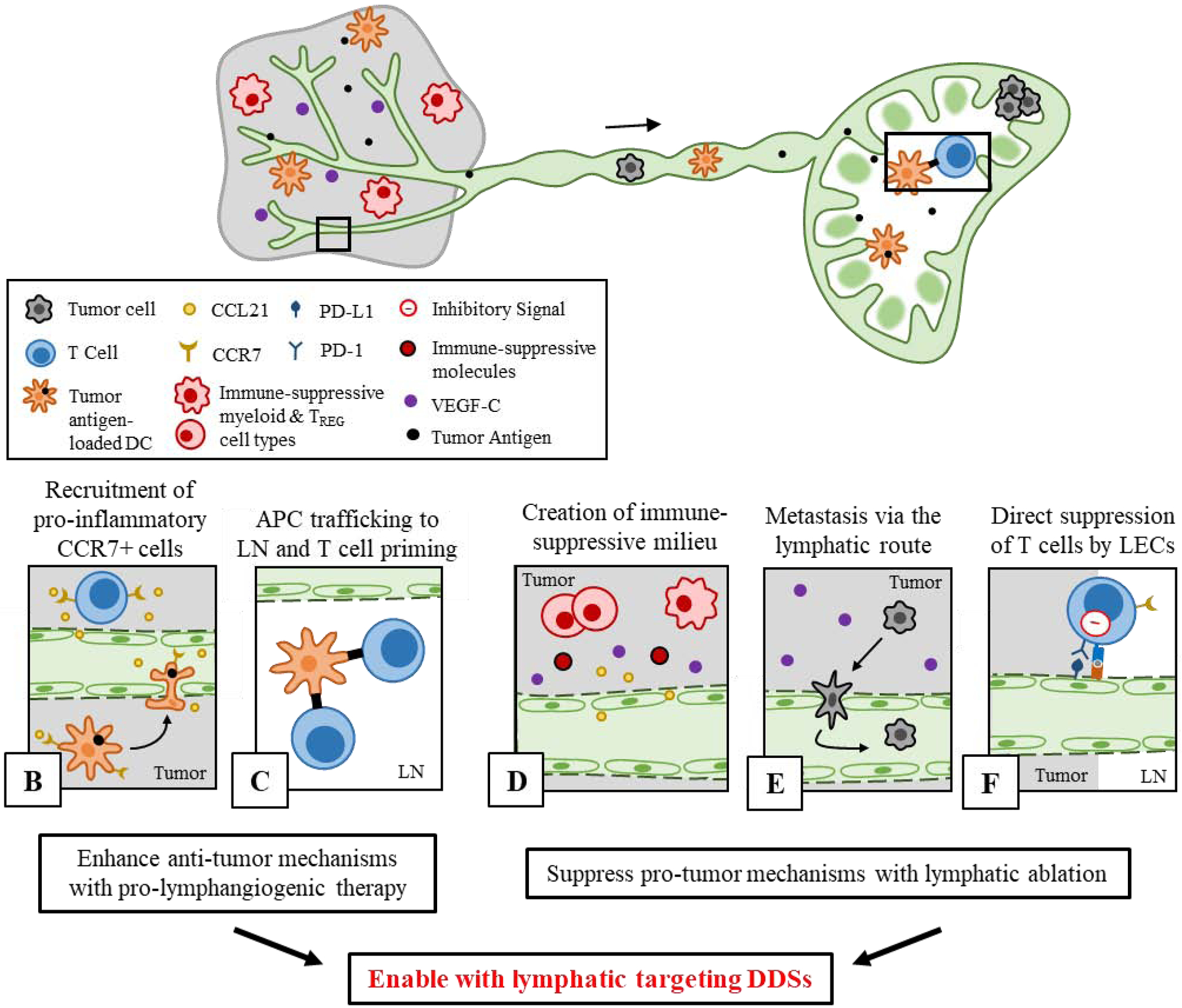Figure 6.

Pro- and anti-tumor effects of lymphatics on cancer immunity, and future directions of DDS-enabled lymphatic targeting for therapeutic lymphangiogenesis or lymphatic ablation. A) Tumor-associated lymphatic vessels and TdLNs have complex involvement in both anti- and pro-tumor immune processes. B-C) Role of lymphatics in anti-tumor immunity. B) In the tumor, local CCL21 secretion by tumor lymphatics promotes infiltration of CCR7+ APCs which C) migrate to LNs in order to prime tumor antigen-specific T cells. D-F) Lymphatic tissues also support pro-tumor immune processes. D) In the tumor, presence of lymphatic vessels and local secretion of VEGF-C and CCL21 are linked to an immune-suppressive molecular milieu and infiltration of regulatory T cells (TREG) and myeloid cells, and E) promote lymphatic metastasis. F) In both the LN and tumor, LECs can cross present tumor antigen to T cells and provide inhibitory signals in order to delete or suppress T cell function (pro-tumor). Established principles of DDS design can enable targeted modulation of lymphatics in order to support or suppress these functions.
